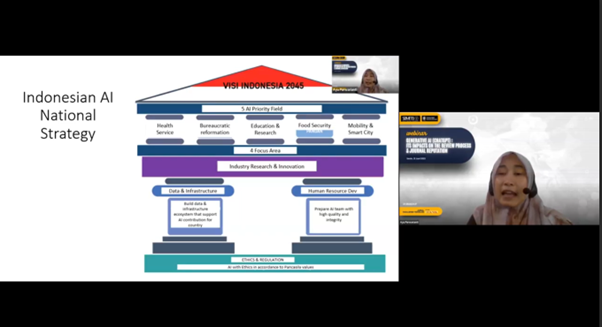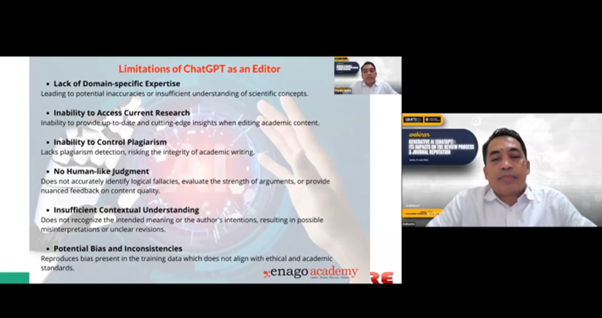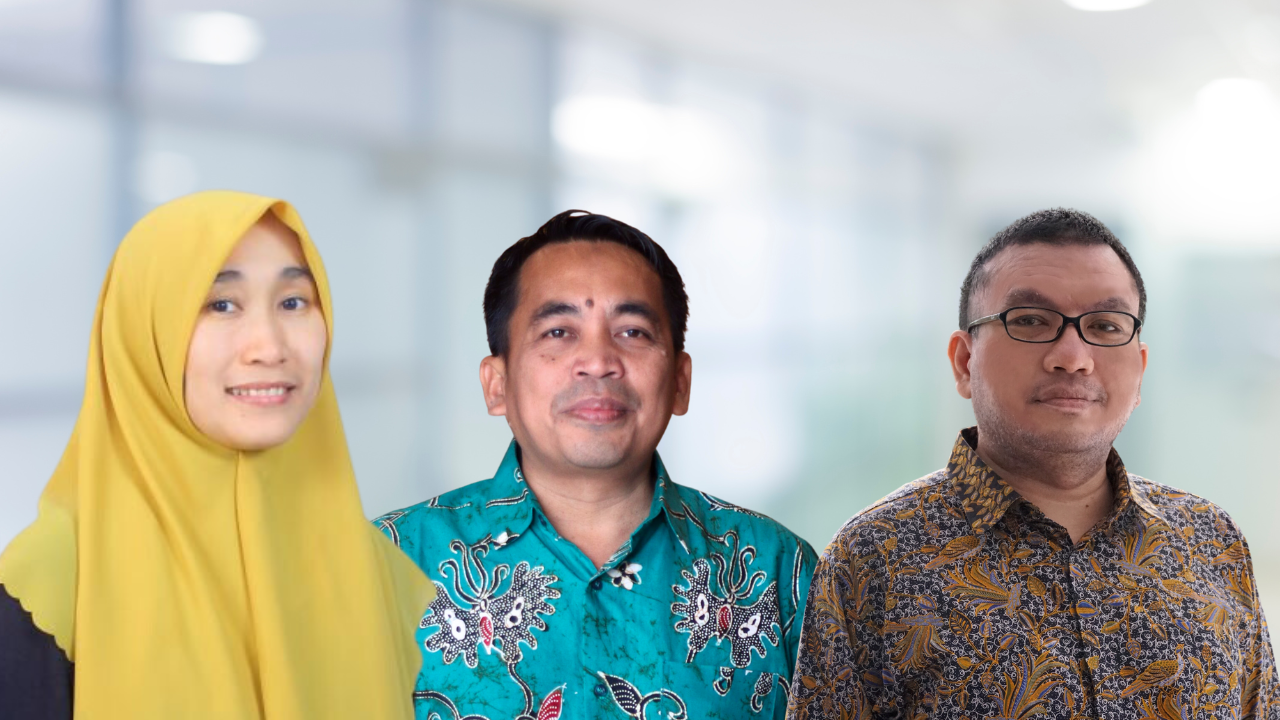The rapid advancement of technology has revolutionized the way researchers support language communication and scientific needs. One of the advancements that has recently attracted great attention is Generative AI, particularly in the form of Large Language Models (LLM).
An example of such a model is OpenAI’s ChatGPT, introduced on November 30, 2022, and Google’s Bard, introduced on May 10, 2023.
In response to this technological development, the Editorial Team of Jurnal Manajemen Teknologi of SBM ITB and Jurnal Teknik of UNDIP held a sharing session in a webinar entitled “Generative AI (ChatGPT): Its Impact on the Review Process and Journal Reputation” on Monday (12/6). This event discusses the implications of Generative AI, especially ChatGPT, in writing scientific papers, the review process, attitudes, and the role of journal managers who accept articles written using AI technology.
Several speakers took part in the webinar, including the Head of the ITB Artificial Intelligence Center, Dr. Ayu Purwarianti, Editor-in-Chief of Jurnal Energi Baru dan Terbarukan and lecturer at the Department of Chemical Engineering UNDIP Prof. Dr. Hadiyanto, S.T., M.Sc.
When opening the event, Editor-in-Chief of Jurnal Manajemen Teknologi, Prawira Fajarindra Belgiumwan, Ph.D., stressed the importance of having this discussion, given the wide use of AI technology in research and the academic world. He highlighted the potential for abuse in scientific writing and errors in AI-generated content.
Therefore, responsible AI practices are essential to deal with unforeseen impacts. Responsible use of AI includes transparency, fairness, accountability, and privacy.

Dr. Ayu Purwarianti, as the first speaker, provided insight into the current development of AI. She mentioned that the progress of AI is significant, but the goal is not to achieve perfection but to have better abilities than humans.
Many countries, including Indonesia, have stepped forward in AI development. Indonesia, since 2020 has issued an official document outlining the development of AI, with a foundation on ethics and values that align with Pancasila as Indonesia’s philosophical basis. AI uses such as ChatGPT must comply with these principles, especially in research and paper writing.
Dr. Ayu also highlighted some restrictions on using ChatGPT in the academic world. For example, nature.com, one of the paper publishers, prohibits journal authors from attributing AI tools like ChatGPT as authors because AI cannot be held responsible for the resulting posts. Some universities and schools have also banned its use, citing the lack of critical thinking skills it promotes in students.
Additionally, the European Union classifies ChatGPT as high-risk due to inaccurate information, data privacy concerns, plagiarism risks, copyright issues, and potential abuse, all strictly prohibited in scientific writing.

Meanwhile, Prof. Dr. Hadiyanto, S.T., M.T., explained that ChatGPT, in the context of academic research and writing, can assist in research conception, academic writing, editing and checking, and academic publishing. However, ChatGPT’s limitations must be considered, such as lack of expertise in a specific field, inability to access current research, lack of human-like judgment, inadequate understanding of context, bias, and inconsistency.
Prof. Hadiyanto emphasized that ChatGPT is a tool, not a conscious being. Their use should focus on only for improving the work’s readability and language. Application of this technology must be made with human supervision and control, and authors must carefully review and edit the results because AI can produce output that sounds authoritative but has the potential to be incorrect, incomplete, or biased.




